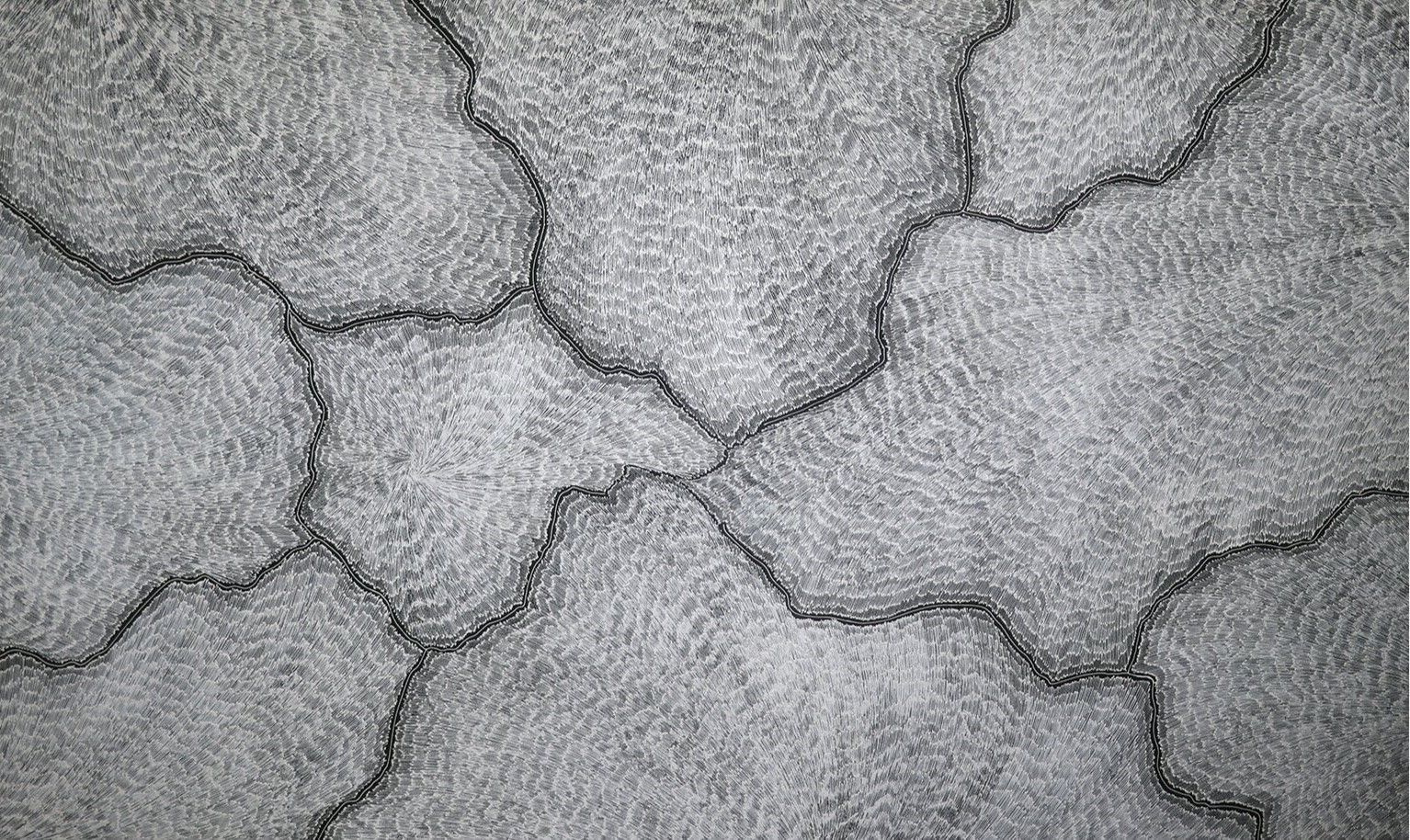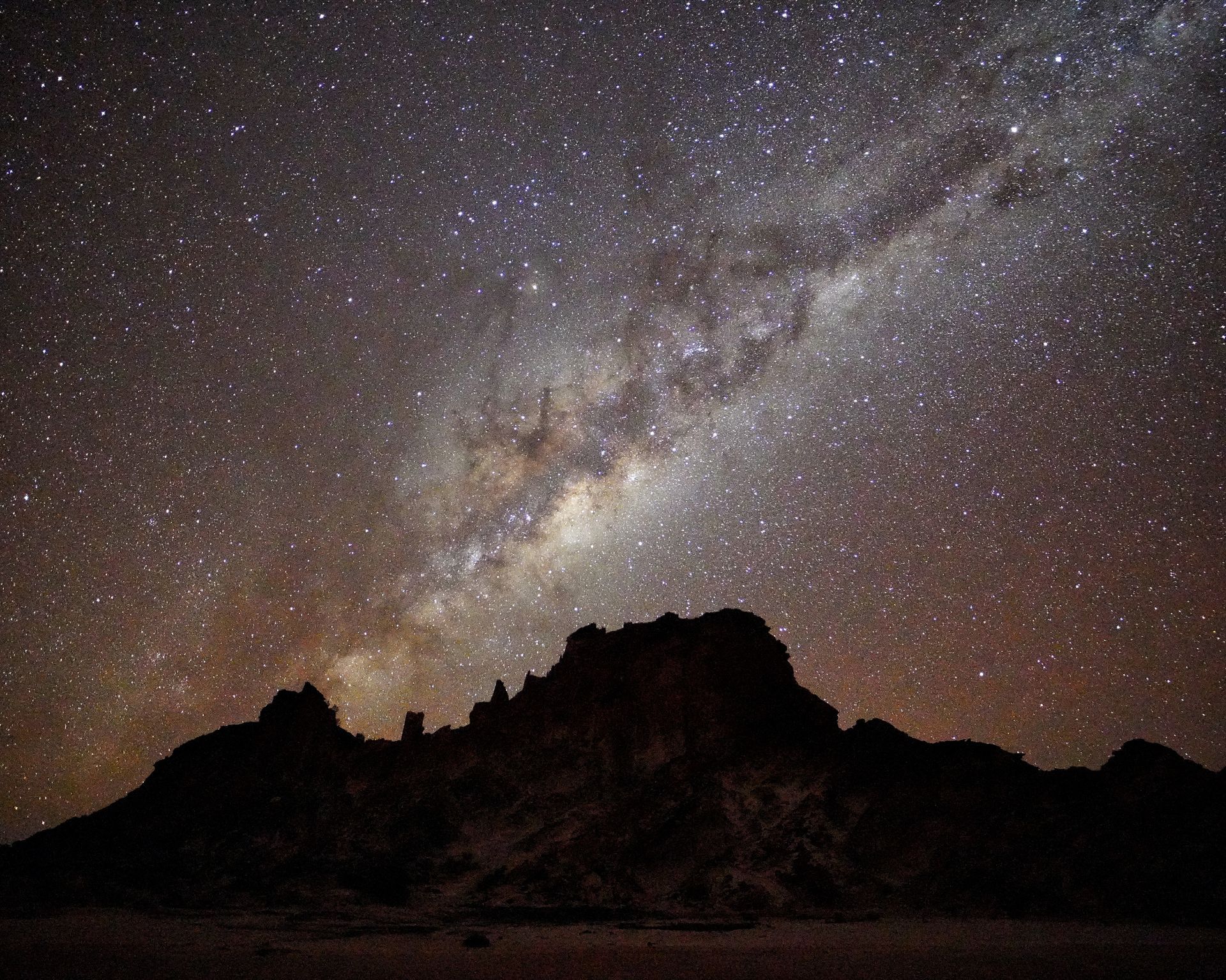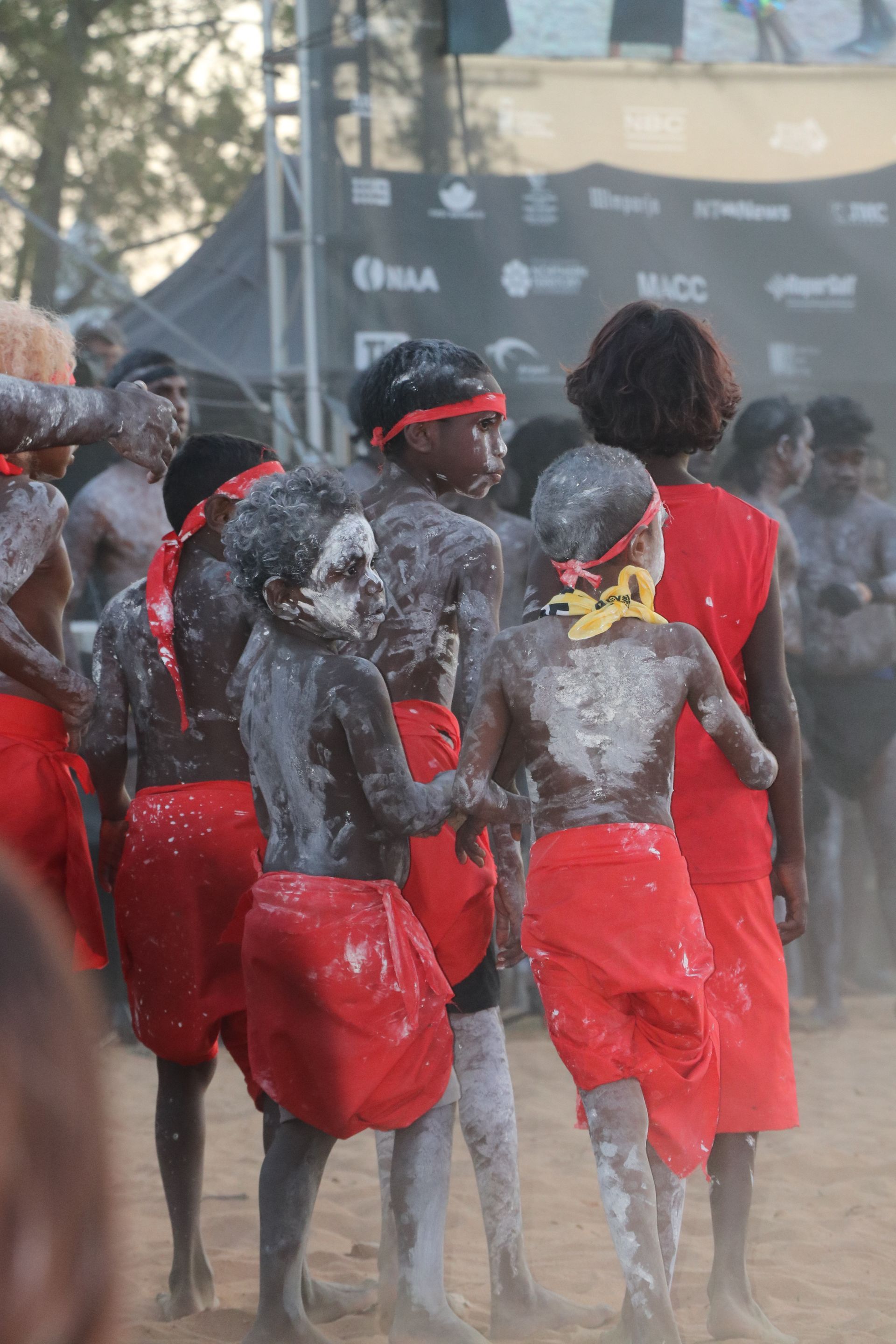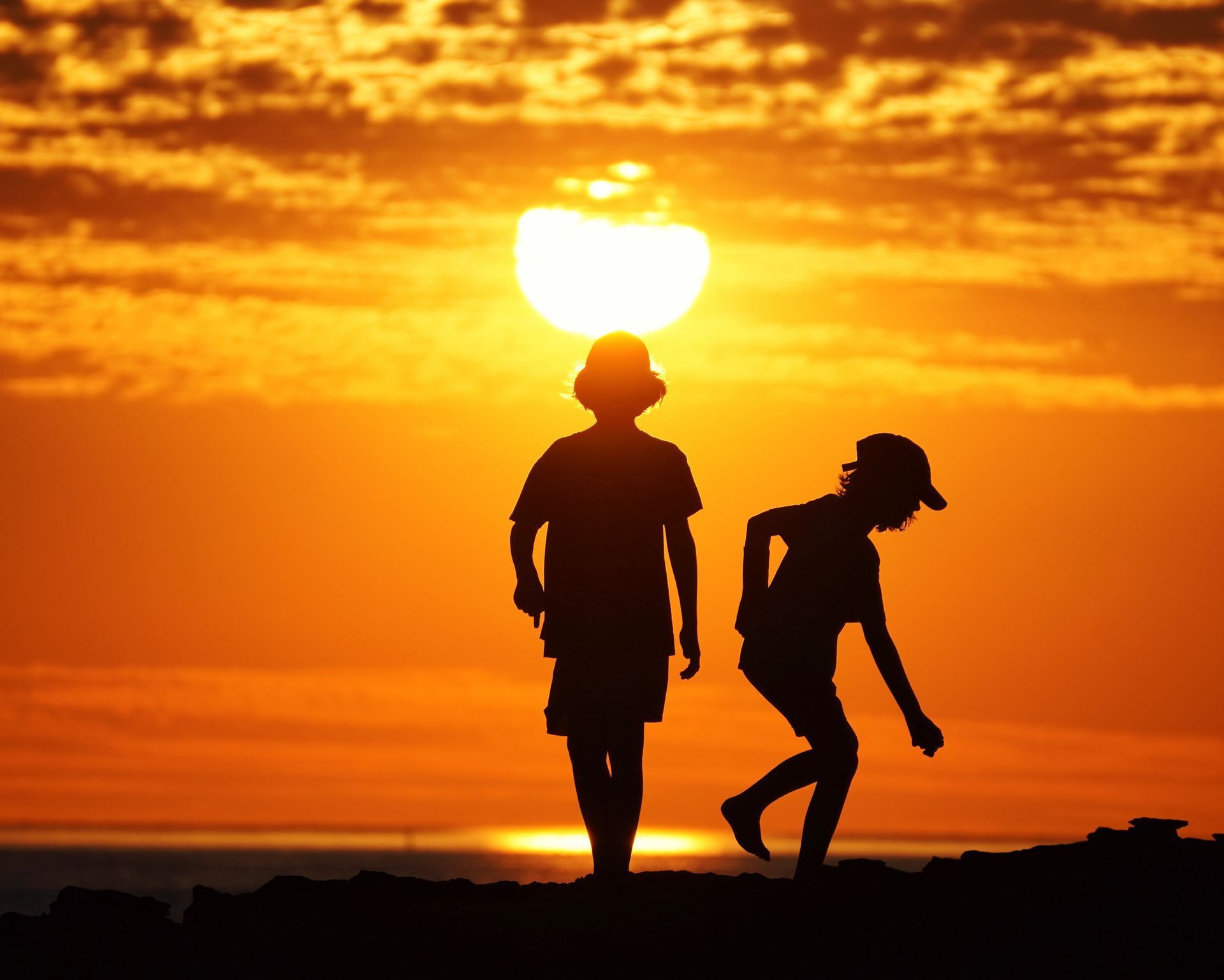Airport Development Group is your preferred partner for strategic infrastructure development & management in the Northern Territory.
Murals and Art
WELCOME!
You have travelled to Gulumerridjin (Larrakia) Country
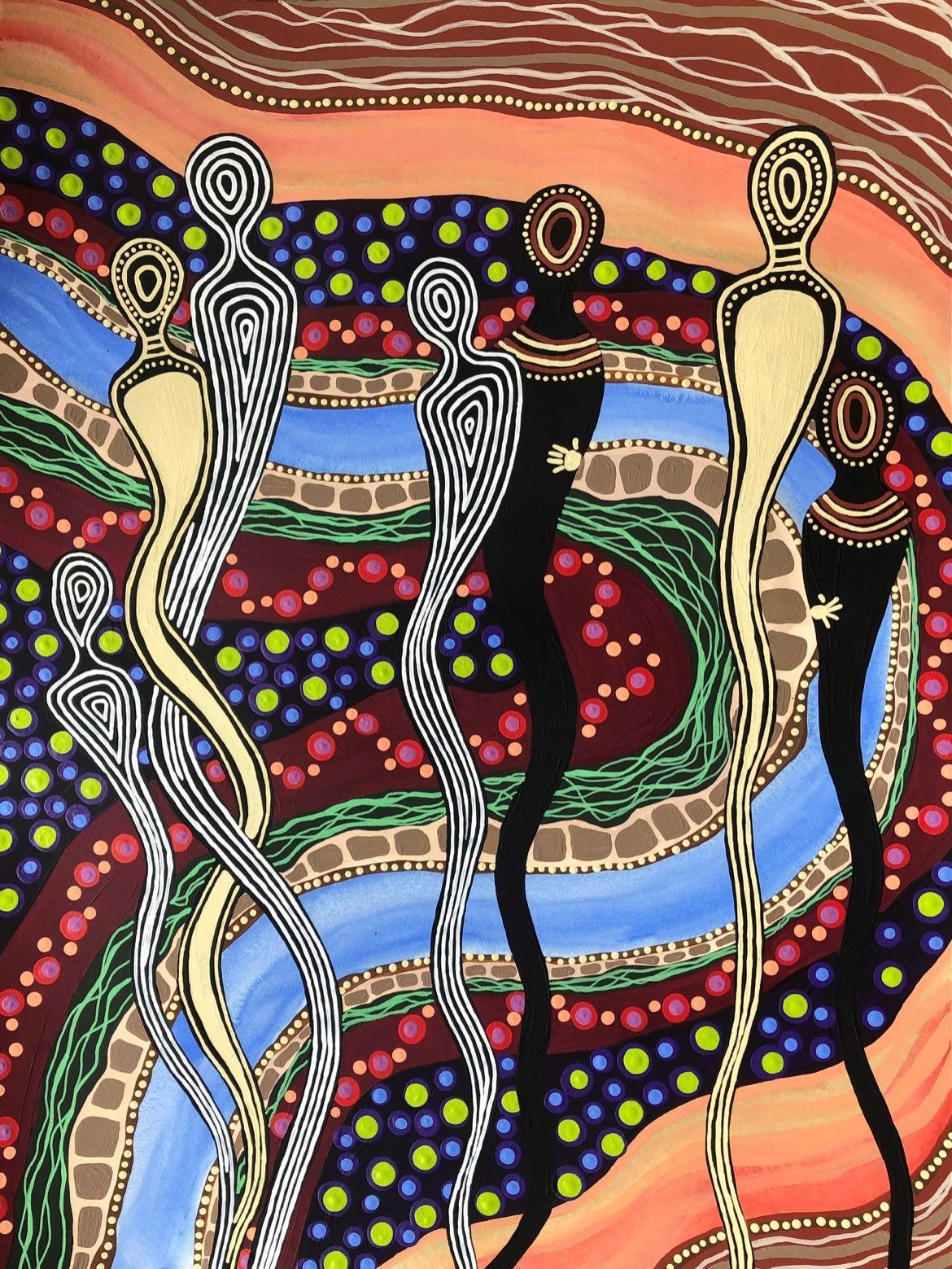
Journey of Travellers
"Journey of Travellers" is celebrating First Nations People's diversity, culture and stories. This painting conveys our journeys in life, especially when we come together for special moments and experiences which create our memories. Travelling creates these memories of curiosity, wonder, celebration and appreciation.
The painting is based around my Elder's Songline of the "Nygabaya or Spirit People Dreaming". They were travellers from the Dreamtime singing to share stories, knowledge and experiences of places that they visited or settled where they became a part of the landscape or sea. The Nygabaya have different markings to represent different people and the colours represent the features of the land and how we connected to it.
Joanne Nasir
Garrawa and Djugan, 2023
Gunamidjindawa Dirula
Saltwater Dreaming
The Jellyfish and stingray hold significant cultural and ecological importance. For the Larrakia, these creatures are intertwined with their spiritual beliefs and Dreamtime stories. The jellyfish, with their mesmerizing forms and delicate movements, symbolise a connection to the water and the cyclical nature of life. Stingrays, on the other hand are revered as powerful and graceful creatures, embodying wisdom and strength. Beyond their cultural significance, both jellyfish and stingrays play crucial roles in the marine ecosystem, maintaining a balance and contributing to the overall health of the ocean. Their presence serves as a reminder of the intricate relationship between Indigenous cultures and the natural world.
Jason Lee
Larrakia, 2023
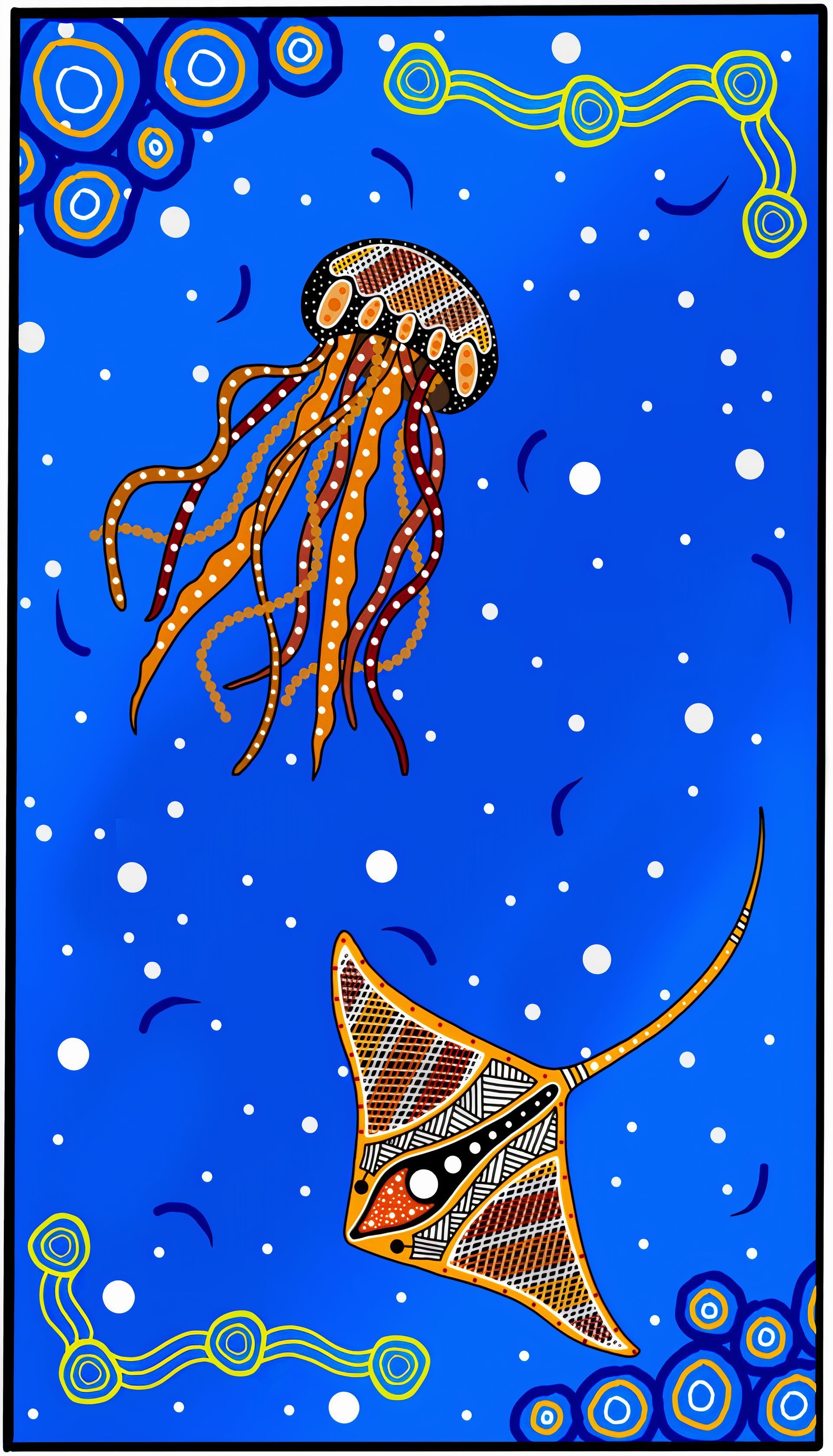
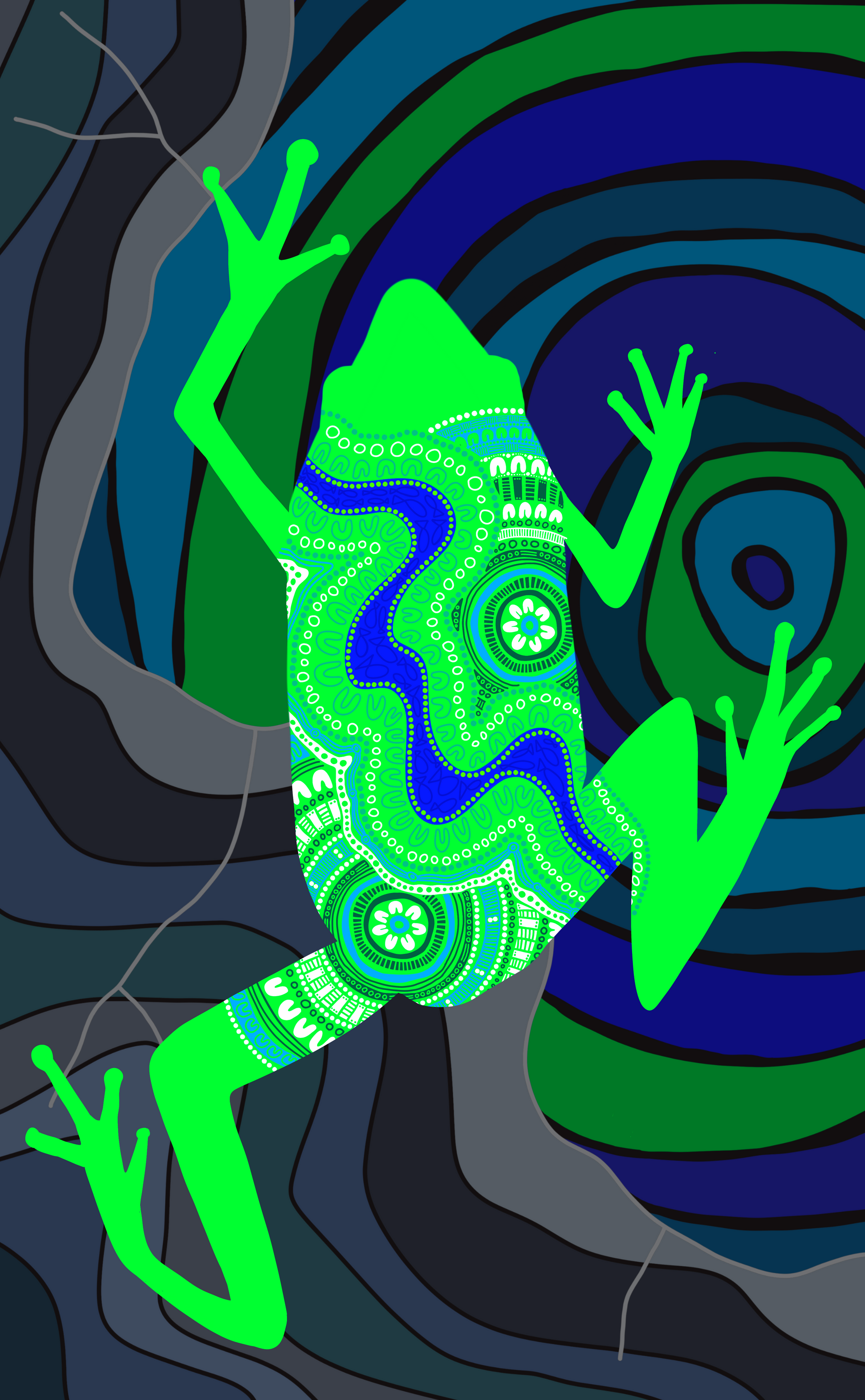
Wurrkal
Green (Gurindji Language) Tree Frog
Wurrkal is the celebration of the beautiful Northern Territory wet season. It features the imagery of a large green tree frog, often the first to signal the approaching wet season.
On his back, a full river teems with fish and life. People gather at the shores to fish and hunt, surrounded by a lush green landscape brimming with life. Two strong communities radiate from the river, full of people and connections, reflecting the strength and growth of our NT communities. Behind the frog the imagery of land and sky is divided by lightning, reminiscent of a wild river splitting the two landscapes.
Sarrita King
Gurindji Waanyi, 2024
Wanupini
Monochromatic versions of these triangular cloud designs (which are shared by all Yirritja clans), decorate these larrakitj (memorial poles). The design relates to the water cycle of souls going from ocean to vapour to cloud to freshwater rain and rebirth. One speaks of massive cumulo-nimbus thunderheads decorated with the blacks of storm.
Nawurapu Wununmurra
Clan: Dhalwanu, Narrkala
Moiety: Yirritja
2016 - 2017
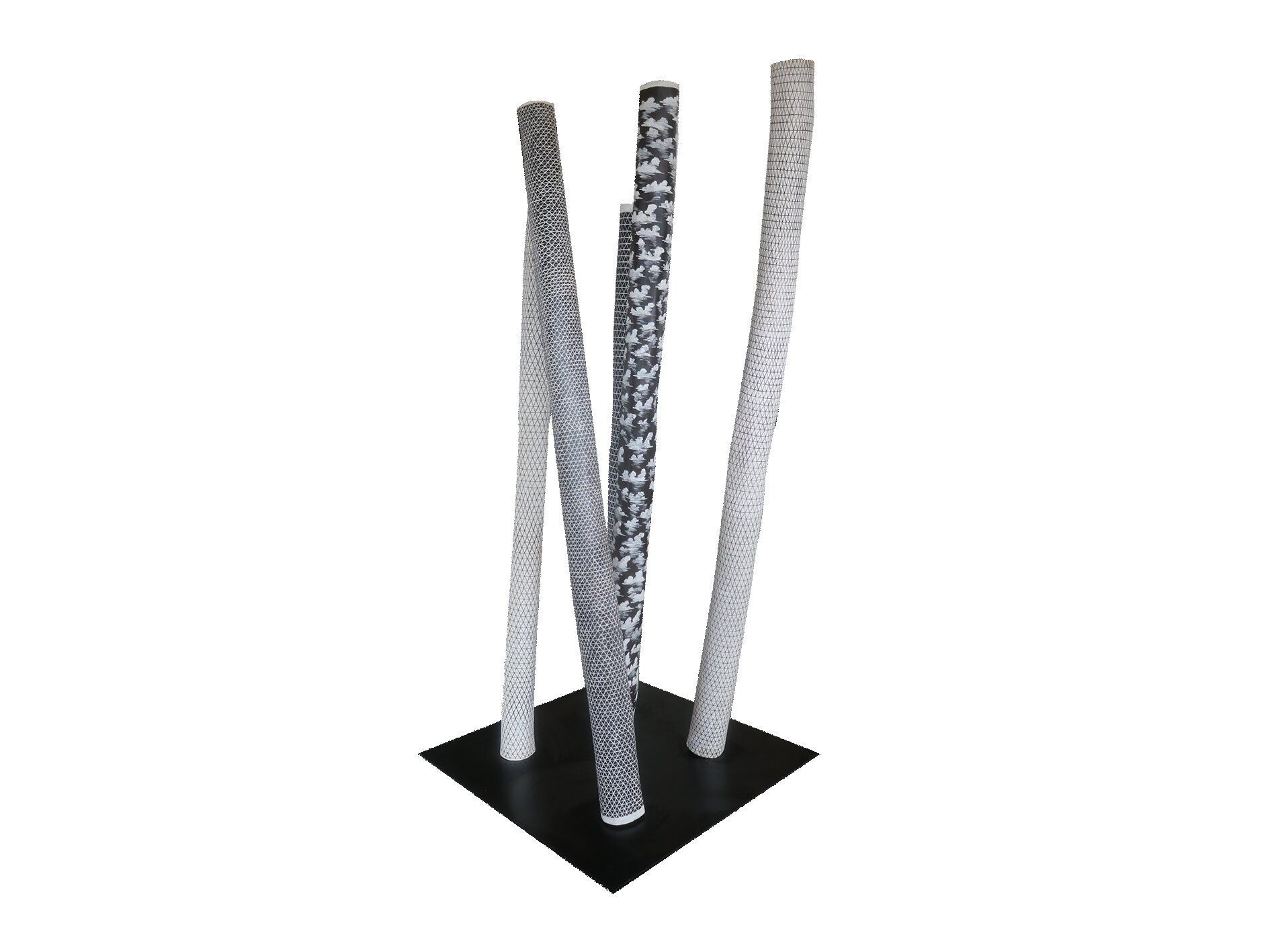
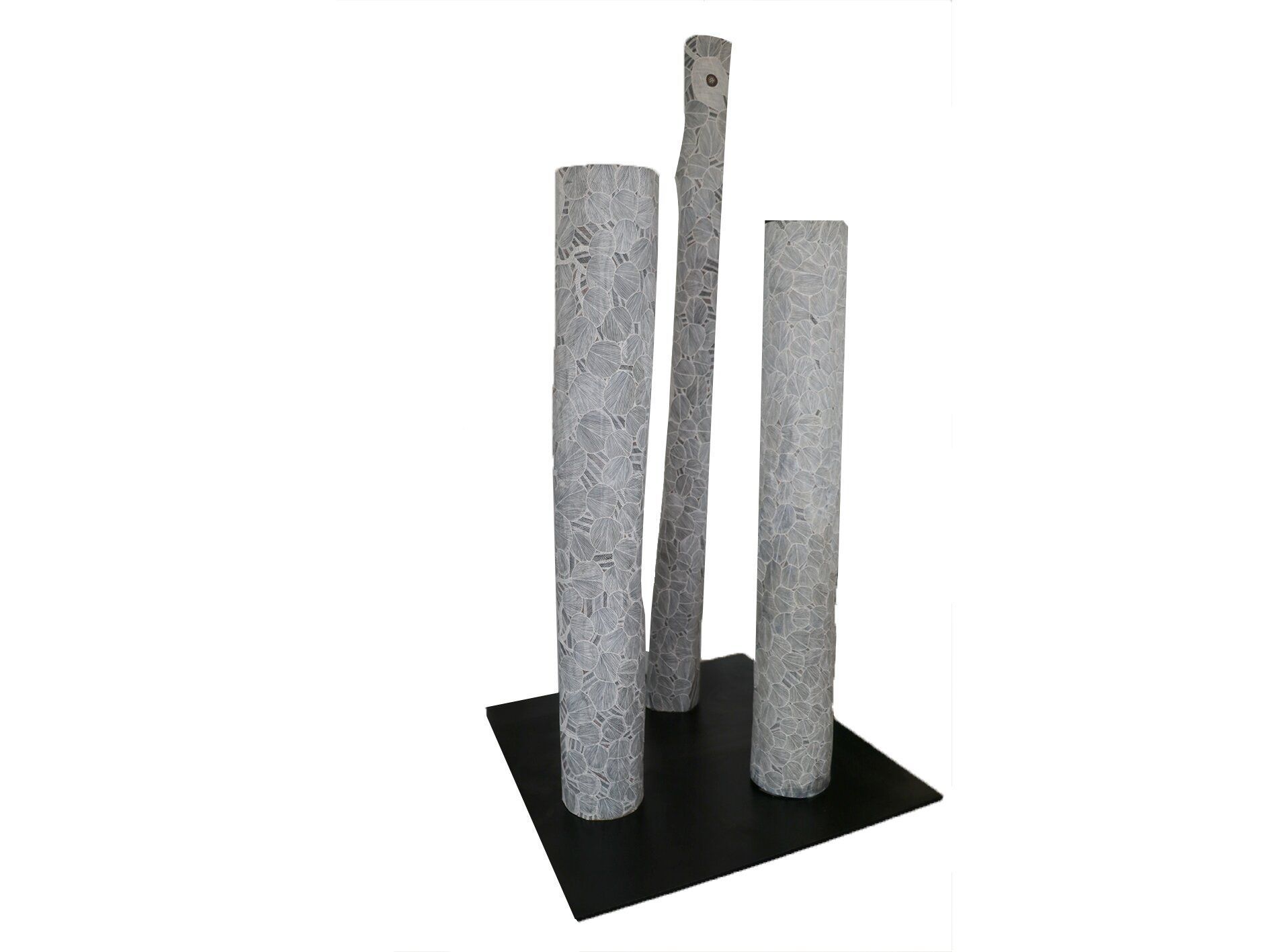
Djaykun at Garrimala, Dhatam, Dhatam
The painting on this works represent, Garrimala, a billabong near the artist's residence, the Dha’wanu clan home at Gäṉgaṉ. It is a sacred site for the artist’s mother’s Gälpu clan. This imagery refers to the story of Wititj the all powerful rainbow serpent (olive python) that travelled through Gälpu clan lands and on further, during the days of early times called Waŋarr. Djaykuŋ the Javanese filesnake is a companion and possibly alternate incarnation of Wititj, living in amongst the Dhatam, or water lilies, causing ripples and rainbows (Djari) on the surface of the water (the cross hatch in the top section).
Malaluba Gumana
Clan: Dhaḻwaŋu, Nuŋburund group
Moiety: Yirritja
2017
Lightning
Sarrita’s Lightning paintings are a painted memory of the electrical storms in the tropical climate of Darwin where Sarrita spent her youth. The lightning would crack across the entire sky, creating lines not dissimilar to cracked earth. And with the lightning came the winds that in their fury whipped up all the dust, rain, heat and magnetic energy into a maelstrom in the air. New patterns and colours were discovered.
Sarrita King
Gurindji Waanyi, 2011
